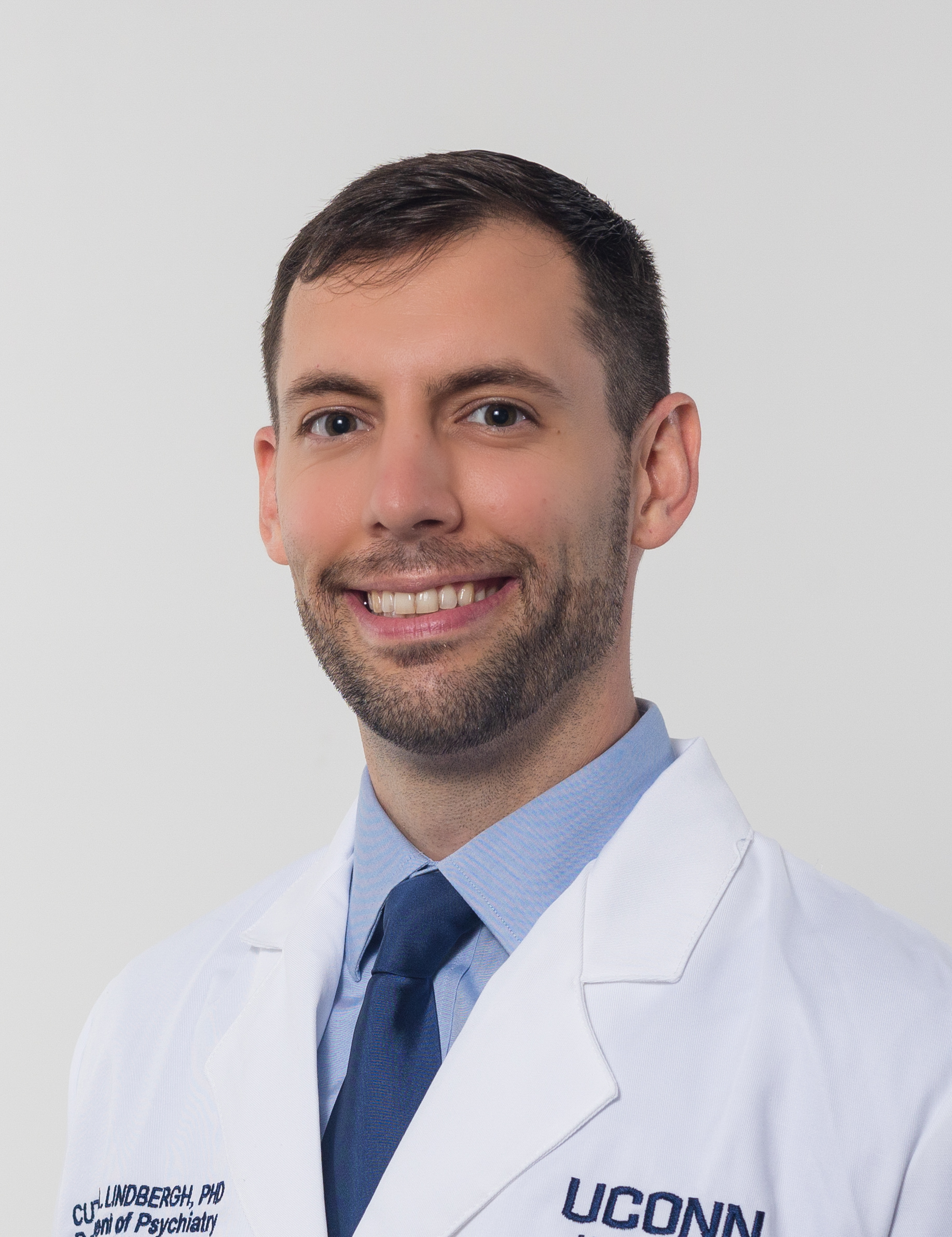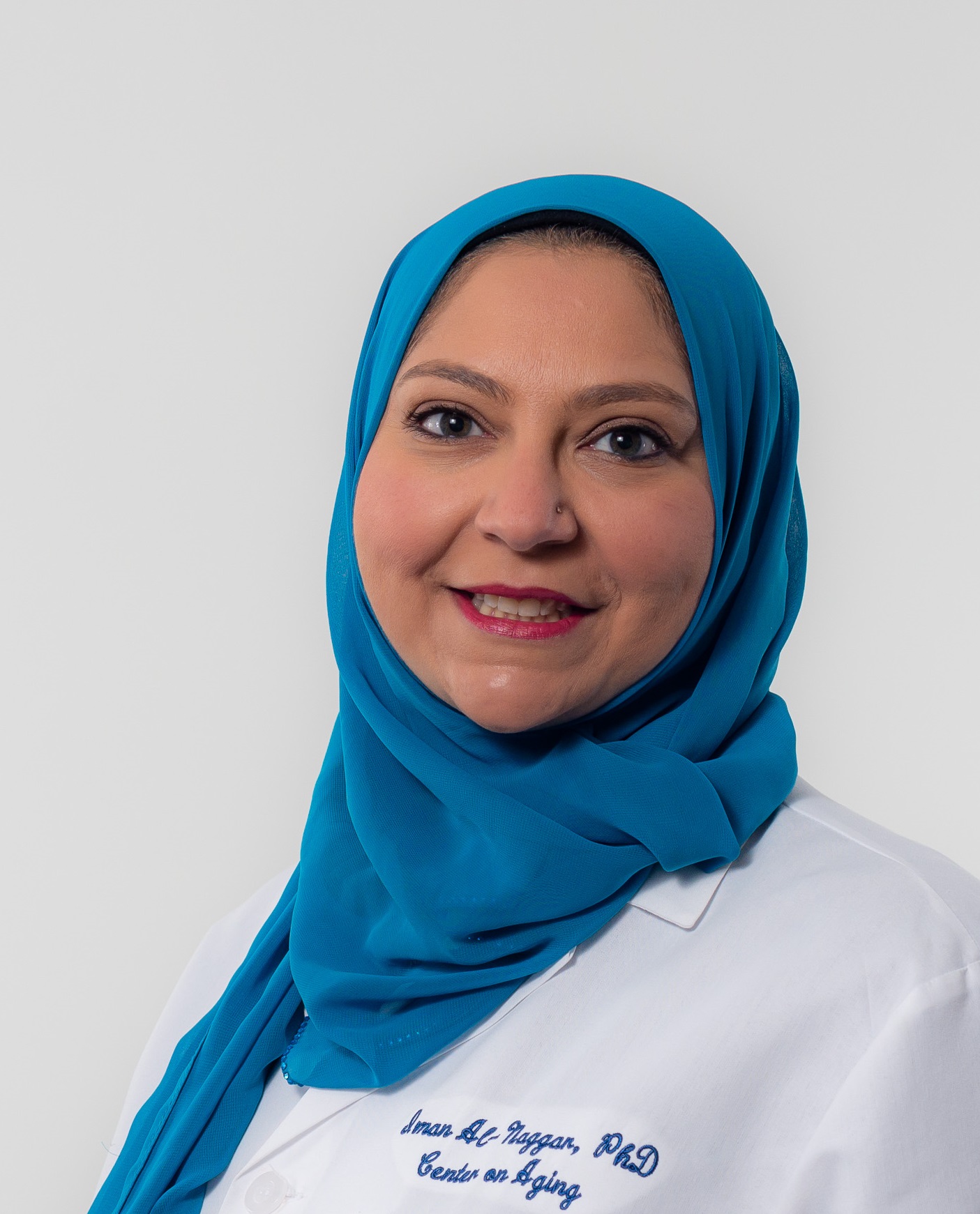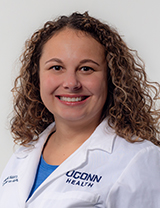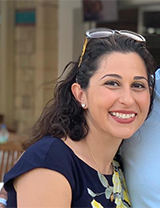A key component of the Research Education Component (REC) is the Pepper Scholar Program. This program provides financial support, education and training to Pepper Scholars to advance their research careers. Pepper Scholars apply and are chosen as showing particular promise as independent investigators in the field of geriatrics and gerontology. The REC, led by Dr. David Steffens, includes several senior research leaders at UConn who serve as mentors to the Pepper Scholars. The mentors provide each of the scholars with personalized educational opportunities, career development and different networking opportunities in order to facilitate their research interests.
2024 Pepper Scholar Awards

Jacob Earp, Ph.D.
Department of Kinesiology Jacob Earp is an assistant professor in the Department of Kinesiology at the University of Connecticut Storrs Campus. His research primarily focuses on improving the health, function, and physical performance by improving muscle quality (function relative to size) and tendon function for people across the life span. Prior to entering the field of aging research Dr. Earp accumulated over a decade of experience working as a sports scientist & strength & conditioning coach. In these roles he has worked with countless athletes and sports organizations including the Olympic programs for four countries (US, China, Australia & Indonesia), the National Strength & Conditioning Association, the International Performance Institute (IMG Academy) and UConn Athletics. While his previous work focused on improving sports performance by optimizing training adaptations in athletes and enhancing recovery after injury, his future works will also apply knowledge learned from athletes to improve health and function in older adults and those with choric diseases which affect muscle quality and/or tendon function. Muscle Quality in Older Adults through the lens of Precision Gerontology and Geroscience While aging many people experience a loss of muscle quality (function relative to size) that impairs physical function and can ultimately lead to disability and loss of independence. This loss of muscle quality has been attributed to 5 potential therapeutic targets: 1) Fat infiltration into the muscle, 2) changes in muscle sub-structure, 3) fibrosis, 4) metabolic impairment, 5) neurological impairment. While each of these aspects can worsen with aging, no studies have directly compared the roles each plays in the loss of muscle quality and specific clinical and functional endpoints. This study will fill this gap in knowledge, which is an essential first step to identifying and prioritizing the therapeutic targets needed to apply a geroscience guided approach to improving muscle quality in older adults.

Cutter Lindbergh, Ph.D.
Department of Psychiatry
Dr. Lindbergh is a Neuropsychologist and Assistant Professor of Psychiatry at the University of Connecticut School of Medicine. He received his bachelor’s degree in psychology at Gonzaga University, master’s degree in experimental psychology at the College of William and Mary, and doctorate in clinical psychology at the University of Georgia. He then completed a postdoctoral fellowship in neuropsychology at the University of California San Francisco Memory and Aging Center. Dr. Lindbergh’s research has focused on characterizing changes in cognitive functioning and day-to-day functioning associated with typical aging and dementia in older adults. He is particularly interested in identifying factors that confer risk for and resilience against cognitive and functional decline in late life. Project Overview A significant minority of coronavirus disease 2019 (COVID-19) patients display a diverse range of persistent symptoms after the acute phase of SARS-CoV-2 viral infection, collectively referred to as “Long COVID”. Post-COVID Neurocognitive Dysfunction (PCND) is a common and debilitating characteristic of Long COVID, especially among older adults. Although older adults with PCND can present with a diverse range of cognitive symptoms (e.g., memory problems, “brain fog”, etc.), the distinctive feature appears to be impairment in frontal-lobe mediated executive functions. Prior work has shown that executive functioning is the single greatest cognitive predictor of day-to-day functioning among the elderly. It follows that PCND—a syndrome hallmarked by executive functioning deficits—is a major cause of functional disability and loss of independence in older adults. The goal of Dr. Lindbergh’s Pepper Scholar Program Project is to gather preliminary data on whether a computerized cognitive remediation (“brain training”) program holds potential to treat executive functioning impairments in older adults with Long COVID and ultimately improve everyday functioning.
2023 Pepper Scholar Awards

Iman Al-Naggar, Ph.D.
Dr. Al-Naggar received her B.Sc. from Kuwait University. She majored in Molecular Biology and minored in Biochemistry. She then received her Ph.D. from the University of Florida’s School of Medicine Interdisciplinary Program in Biomedical Sciences. During her Ph.D., Dr. Al-Naggar studied the structure of a natively unfolded protein, the myristoylated alanine-rich C-kinase substrate (MARCKS), its post-translational modifications and its potential use as a biomarker for early diagnosis and prognosis of rheumatoid arthritis. Following an extended family leave, Dr. Al-Naggar began a postdoctoral fellowship at the UConn Center on Aging under the mentorship of Drs. Phillip P. Smith and George Kuchel. She trained in aging, senescence assays and mouse bladder physiology, specifically with regards how voiding function is affected by aging. Dr. Al-Naggar learned about the potential for geroscience to target complex geriatric syndromes such as urinary incontinence during the Butler-Williams Scholars Program at the NIA and became interested in testing gerotherapeutics to treat Lower Urinary Tract Symptoms (LUTS) in older adults. Dr. Al-Naggar was appointed as an Assistant Professor in-Residence at the UConn Center on Aging in October 2021, with appointments in the Departments of Cell Biology and Surgery. Her research focuses on developing urinary biomarkers of aging and LUTS and testing gerotherapeutics to alleviate LUTS in older adults. Equally passionate about education, Dr. Al-Naggar is also involved in both local and national NIH-funded geroscience education efforts.
Project Overview LUTS affect over half of older adults, greatly decreasing their quality of life and leading to depression, isolation and loss of independence. Unfortunately, there are currently no cures for LUTS as most therapies do not target underlying physiology. Both aging and the metabolic syndrome are risk factors for LUTS and biological hallmarks of aging including inflammation and mitochondrial dysfunction are emerging as players in the pathophysiology of LUTS in both conditions. Dr. Al-Naggar has proposed that MitoQ, a strong mitochondrial-targeted antioxidant, will alleviate LUTS in older women with metabolic syndrome by targeting multiple biological hallmarks of aging including improving mitochondrial function, decreasing reactive oxygen species, reducing inflammation and improving endothelial cell function. During her Pepper Scholar Project, Dr. Al-Naggar will conduct a placebo-controlled double-blinded randomized controlled pilot study to test whether MitoQ can alleviate LUTS in women aged 50-75 years old who also have metabolic syndrome. This study will serve as proof-of-principle that gerotherapeutics have the potential to improve LUTS. Additionally, Dr. Al-Naggar will examine both blood and urinary biomarkers of aging and LUTS, correlate them with LUTS severity and determine whether they change with MitoQ treatment. The goal of the biomarker work is to help with diagnosis and determine which patients may benefit from gerotherapeutics.

Benjamin T. Ristau, MD, MHA
Benjamin T. Ristau, MD, MHA is a Connecticut native who grew up in Colchester, CT. He received his M.D. from the University of Connecticut and completed a urologic surgery residency at the University of Pittsburgh Medical Center. Following this, he received additional surgical training during a 2-year Society of Urologic Oncology accredited fellowship at Fox Chase Cancer Center in Philadelphia, PA. He received a Masters in Health Administration from Temple’s Fox School of Business as part of this fellowship. Dr. Ristau joined the Division of Urology as an Assistant Professor of Surgery in 2017. His clinical practice focuses on holistic surgical management of urologic malignancies including prostate, bladder, kidney, testicular, and adrenal malignancies. He has established strong research collaborations with the Jackson Laboratory for Genomic Medicine. This work seeks to better understand underlying heterogeneity in bladder cancer biology and in the physiology of older adults afflicted by bladder cancer.
Project Overview
Bladder cancer is currently diagnosed at a median age of 73 years, an age projected to increase in coming years. There is evidence that older adults with bladder cancer are both overtreated and undertreated. Overtreatment is a problem since some patients may benefit from conservative approaches to avoid undesirable treatment side effects. Conversely, undertreatment is equally troublesome since treatment in properly selected older patients can prevent cancer-related declines in quality of life. Current standards of care for patients with invasive bladder cancer are radical cystectomy (with or without perioperative chemotherapy) and combination chemoradiation therapy. A better understanding of underlying heterogeneity in individual physiology or frailty – irrespective of age – is necessary to enable clinicians and their patients to make important treatment decisions.
Through the Pepper Scholar mechanism, this project will assess the ability of blood-, urine-, and tissue-based biomarkers of aging in combination with clinical frailty assessment to predict clinical outcomes in older adults with bladder cancer undergoing radical cystectomy or chemoradiation therapy with curative intent. All patients undergoing treatment with curative intent for invasive bladder cancer at UConn Health will be recruited to participate. They will receive a formal clinical frailty assessment and analyses of aging-associated biomarkers (IL-6, CRP, TNF-R1). I hypothesize that the combination of clinical frailty assessment with a biomarker-based approach will provide a better assessment of frailty which will translate into better clinical decision-making by patients and their physicians.
2022 Pepper Scholar Awards

Jenna Bartley, Ph.D.
Dr. Jenna Bartley received her B.S., M.S., and Ph.D. in Kinesiology from the University of Connecticut. Her graduate research focused on interrelated aspects of human health, metabolism, and muscle function focusing on human subject research. She completed a postdoctoral fellowship focused on immunology and aging utilizing murine models of aging and infection under Dr. Laura Haynes, an expert in CD4 T cell biology. She became an Assistant Professor in 2019 in the Department of Immunology and UConn Center on Aging at UConn Health. Her independent research focuses on combining her unique education and training background in both murine and human subject research to focus on translational aging research. Her multidisciplinary research uses geroscience approaches to bridge the bench and the bedside to uncover common pathways among the aging process and to develop potential interventions to prevent age-related declines in immune responses and overall health.
Project Overview
Older adults are at increased risk for morbidity and mortality from infections due to immune system declines. Influenza (flu) infection remains a significant burden on older populations, with 9 out of 10 flu deaths occurring in individuals 65 years and older. While flu and COVID-19 vaccines are available, impaired immune responses with aging reduce vaccine efficacy, leaving older adults less protected than their young counterparts. Current methods to improve vaccination efficacy in older adults, however, target singular deficits in immune responses, and fail to completely rescue responses. Robust immune responses to infection and vaccination require a complex coordination of multiple cells and tissues. Thus, an approach that targets the biology of aging as a whole, rather than specific cell types or pathway, is in line with the geroscience hypothesis and likely is more suitable to improve overall immune responses and vaccine efficacy in older adults.
Metformin has been shown to extend lifespan in multiple animal models and reduce all-cause mortality in humans. It is a candidate drug to target the overall biology of aging and the focus of the first large geroscience-guided trial Targeting Aging with Metformin (TAME), making it an ideal intervention to target age-related changes in immune cell metabolism and function. I completed a proof-of-concept pilot study, Vaccination Efficacy with Metformin in Older Adults (VEME), that examined the effect of metformin on flu vaccine responses in healthy older adults, however more mechanistic studies in murine models would be extremely valuable to inform the design of a larger human clinical trial to investigate the impact of metformin on immune responses in healthy older adults. Here, my Pepper Project aims to determine the impact of metformin on flu vaccine responses in aged mice, as well as determine the immunometabolic effects of metformin in healthy older adults utilizing cryopreserved peripheral blood mononuclear cells (PBMCs) from my VEME trial. I hypothesize that targeting metabolism via metformin will improve vaccination responses and protection in aged mice. I also hypothesize that in healthy older adults metformin will increase maximal respiratory capacity of T cells.

Cristina Colòn-Semenza, P.T., M.P.T., Ph.D.
Department of Kinesiology
Cristina Colón-Semenza is an Assistant Professor at the University of Connecticut in the Doctor of Physical Therapy program. Dr. Colón-Semenza has extensive experience working as a physical therapist across the spectrum of neurological disorders and across practice settings. Additionally, she is a board-certified clinical specialist in neurologic physical therapy. She has published several peer-reviewed articles and has presented both regionally and nationally on topics related to neurologic physical therapy practice. Dr. Colón-Semenza is now focused upon determining the best strategies to enhance the use of physical activity and physical therapy in the management of neurodegenerative diseases, specifically in underrepresented groups. Additionally, she is interested in physical therapy management of mental health conditions. She is active in the American Physical Therapy Association nationally and locally. Through the APTA Connecticut chapter, she chairs the DEI committee and Neurologic Physical Therapy Special Interest Group.
Peer Coaching to Improve Disease Management in Older Latinx Adults with Parkinson Disease
My long-term research aim is to increase the physical activity of people with neurological conditions to mitigate symptoms and disease progression. Specifically, I aim to engage individuals from underrepresented groups with neurological disorders through community-based research. I am currently adapting a physical activity peer coaching program for individuals living with Parkinson disease who identify as Hispanic/Latinx. This is an extension of my prior work, a behavioral feasibility trial, grounded in Bandura’s social cognitive theory and self-determination theory. We used mobile health technology along with principles of behavior change in the general population of people with Parkinson disease. In addition, I have investigated the role of effort valuations and incentives to increase physical activity, especially in the face of impaired motivation, namely apathy and the anticipation of pleasure in neurological conditions (impairments in mesolimbic dopaminergic pathways). Finally, I am interested in the effect of physical therapist interventions upon mental health. My diverse clinical experiences in hospitals, rehabilitation clinics, and outpatient clinics, for over two decades, inform my research questions and drive for health equity.

Roshanak Sharafieh, Ph.D.
Department of Surgery
Currently, Dr. Sharafieh is an Assistant Professor in the Department of Surgery at UConn Health. She obtained her Bachelor’s degree in Diagnostic Genetic Sciences and her Ph.D. in Molecular Genetics from the University of London. Her research is focused on inflammation and wound healing with emphasis on the role of extracellular vesicles.
Dr. Sharafieh’s interests are in unraveling the underlying pathophysiology of various chronic ulcers/wounds, using biomarker development to not only identify better treatment options, but also develop a better understanding of the mechanisms involved in the development of chronic ulcers in the aging population and how to better treat them. Dr. Sharafieh’s research focuses on wound healing mechanisms, tissue engineering, inflammation, extracellular vesicles, RNA/DNA roles in the healing process and coatings on devices or bandages to accelerate tissue repair.
Biomarker Development to Promote Geroscience-Guided Approaches to Chronic Wound Management in Older Adults
The goal of this project is to explore an association between older adults with poor wound healing and an accumulation of senescent cells at the wound (ulcer) site. In addition, using extracellular vesicles, identify blood biomarkers in patients with chronic ulcers, to aid in predicting wound progression and defining more effective treatment plans, which will reduce loss of mobility, thereby leading to a higher quality-of-life for these patients.